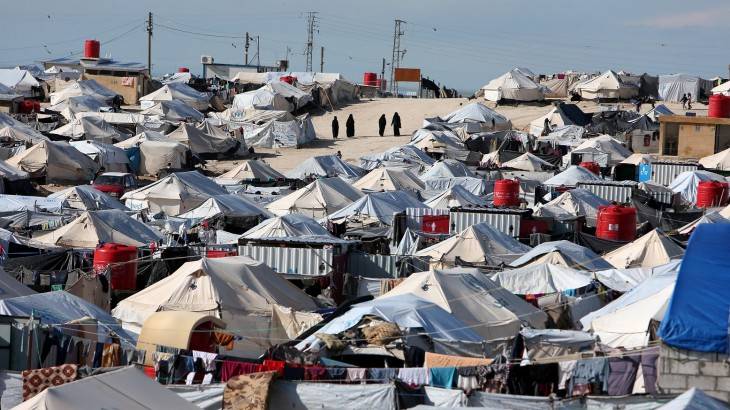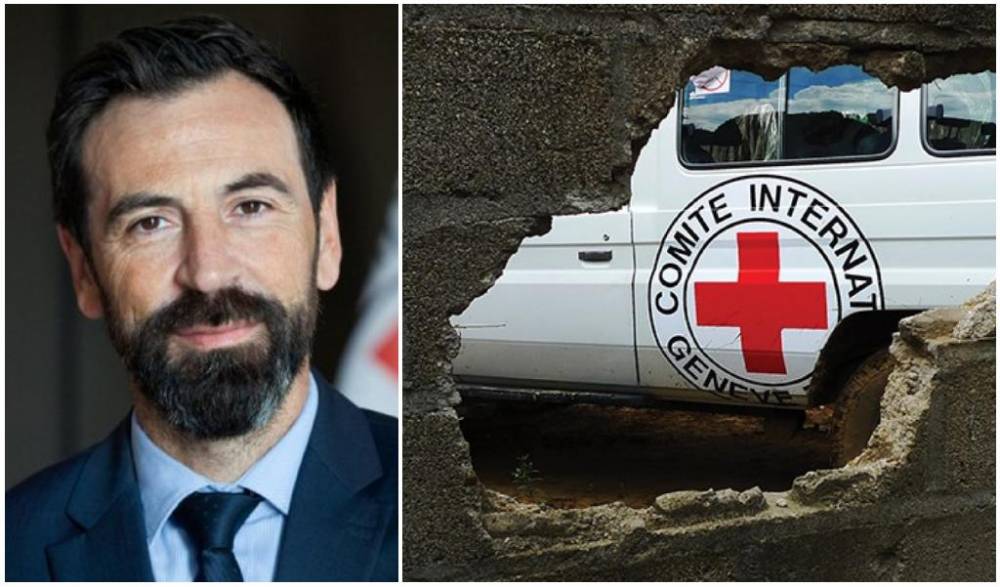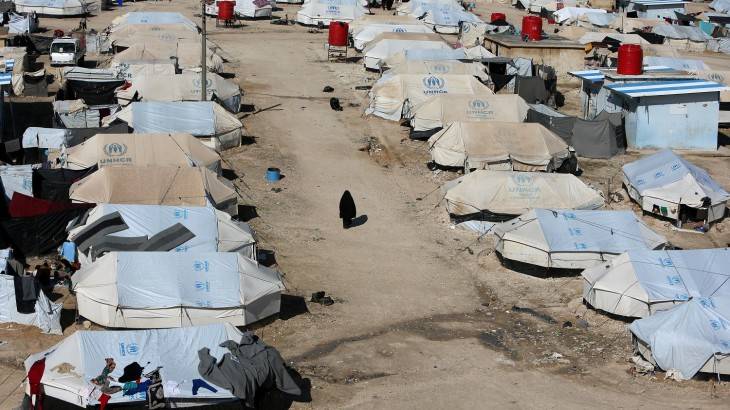FIGHTING IN SYRIA: ICRC IS DEEPLY CONCERNED WITH ESCALATION
Published byAFTER eight years of conflict, 11.7 million people across Syria require humanitarian aid. In the face of such need, the International Committee of the Red Cross is deeply concerned that any escalation in the country's north-east could harm an already struggling population.

A general view of al-Hol displacement camp in Hasaka governorate / REUTERS/Ali Hashisho.
"Today, hundreds of thousands of people in the area - whether in camps, detention or their own villages and towns – are again facing the prospect of more conflict," said Fabrizio Carboni, ICRC's Geneva-based director for the Near and Middle East, in statement from Geneva recently.
"The humanitarian needs across Syria are immense, and the ICRC is trying to meet them in what is already an incredibly complex environment. The humanitarian space needs to be preserved."

Fabrizio Carboni, ICRC's Geneva-based director for the Near and Middle East.
In the northeast of Syria (Hassakeh, Raqqa and Deir Ezzor governorates), more than 100,000 people are currently being hosted in camps, the vast majority of them Syrians and Iraqis.
There are over 68,000 people living in Al Hol camp alone -- two thirds of them children – where the ICRC jointly runs a field hospital with the Syrian Arab Red Crescent and the Norwegian Red Cross.
Years of fierce fighting have left most of Syria's vital services extremely fragile. Half of Syria's health facilities are not functioning or are only partially functioning.
Two million children cannot go to school, casting a further shadow on the country's future. One in two Syrians have been displaced by the conflict, either abroad or within the country.
Meanwhile, international news agency Reuters reported that Turkish forces targeted areas around two Syrian border towns with fresh shelling on Sunday (13/10/2019), pressing on with their offensive against Kurdish militia for a fifth day in the face of fierce international opposition.
Ankara launched the cross-border assault against the YPG militia after U.S President Donald Trump withdrew some U.S. troops from the border region. Turkey says the YPG is a terrorist group aligned with Kurdish militants in Turkey.
As a result, Turkey is facing threats of possible sanctions from the United States unless it calls off the incursion, while the Arab League has denounced the operation and NATO allies Germany and France said they were halting weapons exports to Turkey, according to the Reuters' report.

Al Hol Camp in Syria / REUTERS.
Carboni reminded those taking part in the fighting in Syria that they are obliged by law to spare civilians and all others not taking part in the hostilities, including detainees and all those fleeing from the fighting.
"All zones should be safe for civilians and anyone else not directly taking part in the fighting. That's a basic tenet of international humanitarian law," said Carboni.
Civilian infrastructure must not be targeted during hostilities. Unimpeded passage of humanitarian relief, including medical services, must be granted.
Humanitarian and medical personnel, including those displaying the Red Cross or Red Crescent emblem, must be protected and respected. And all detainees must be treated humanely.
With thousands of people fleeing areas affected by hostilities, the ICRC is now trying to assess and respond to new needs that have emerged.
The ICRC has been visiting people in camps and detention places -- Syrians, Iraqis and other third-country nationals – while doing its best to support this population in dire need of humanitarian services.
Some of the camps visited in the northeast of Syria contain large numbers of foreign women and children.







